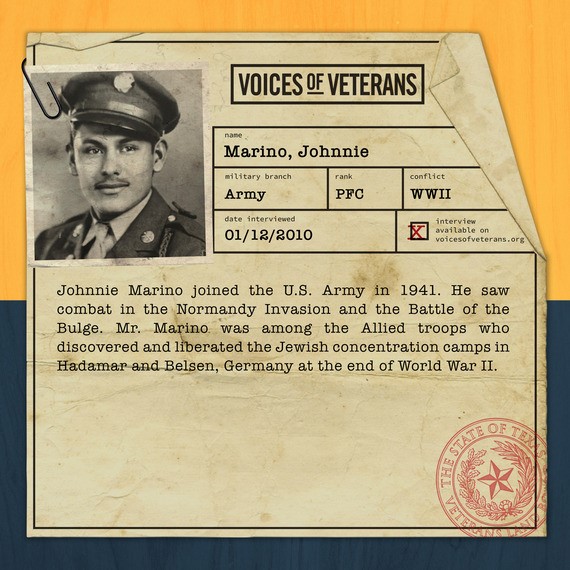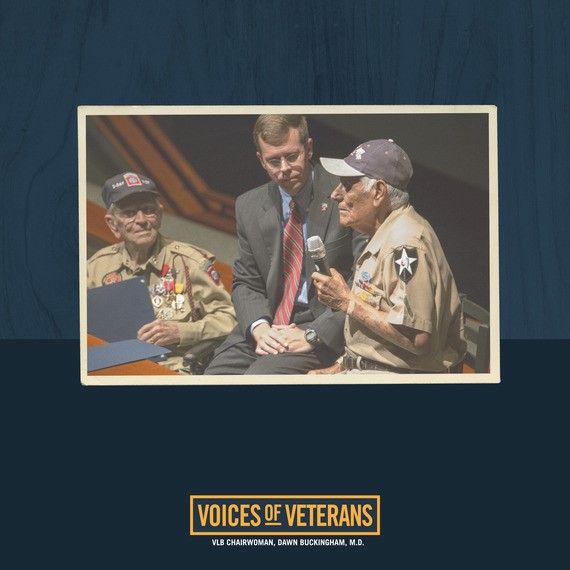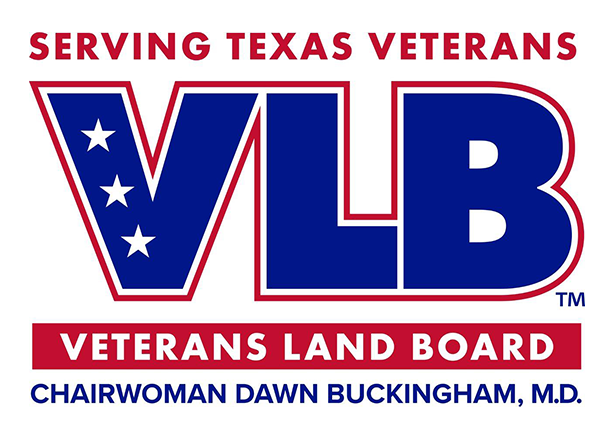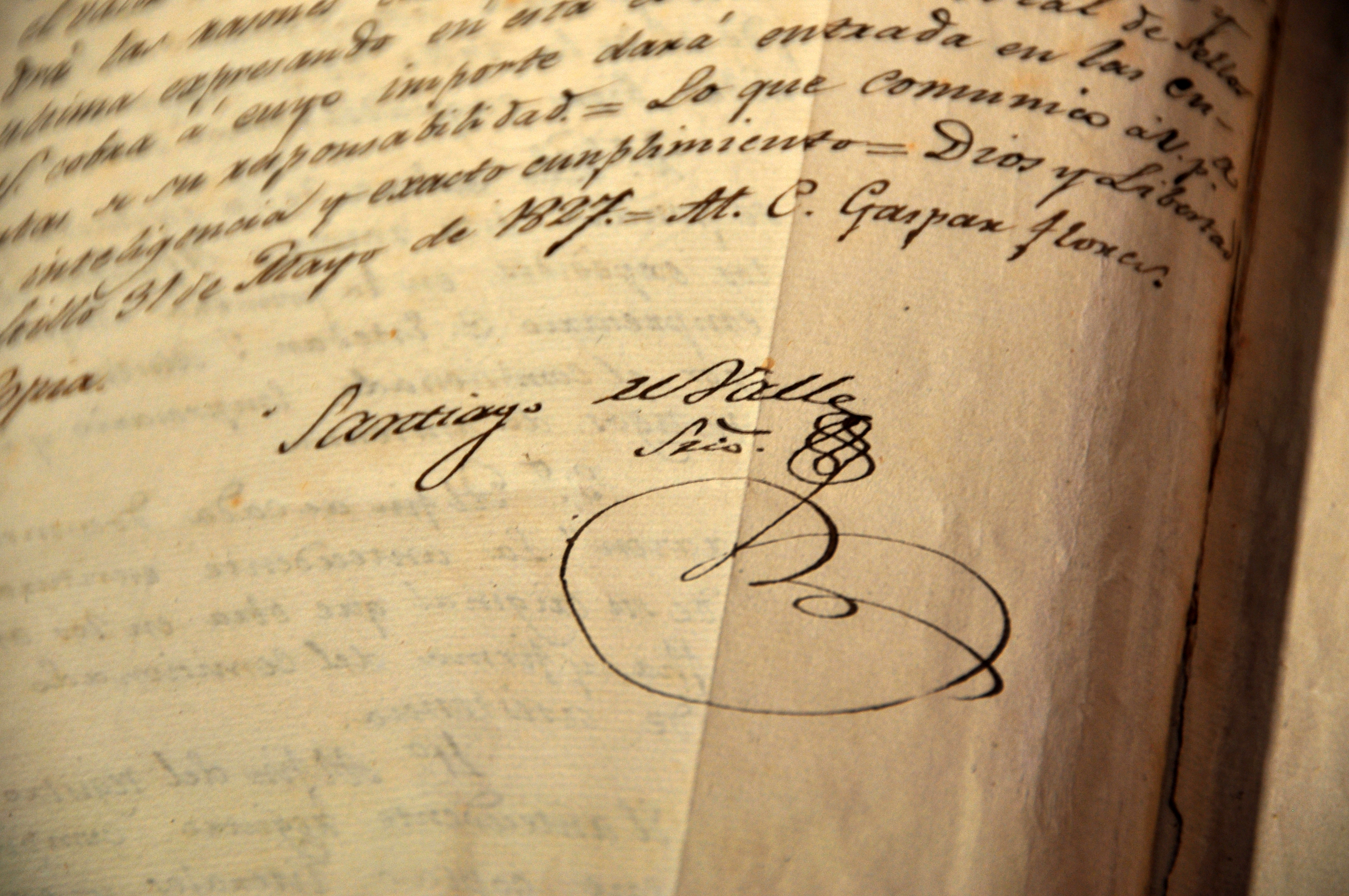Today, Texas Land Commissioner and Veterans Land Board (VLB) Chairwoman Dawn Buckingham, M.D., is proud to introduce the next installment of the series highlighting the VLB's Voices of Veterans oral history program. This week, we highlight the service of Private First Class (PFC) Johnnie Marino who served in the U.S. Army.
Marino was born in Colorado City, Texas and experienced the Great Depression and the loss of his mother as a child. He volunteered for military service not long before Pearl Harbor and went to Fort Sam Houston for basic training.

He was sent overseas in October 1943 and served as an ammunition carrier for artillery. Marino was a part of the first wave to land on Omaha Beach on D-Day during World War II.
"They said your job is to get to the beach, says by that time artillery should be there, and you deliver these shells to the battery there. Nothing came out like they had planned, really. Artillery didn’t make it. The others did the next day. I believe our initial units really fought a great fight."
Marino survived D-Day without being injured, but was wounded later in St. Lo and then again during the Battle of the Bulge. He and his unit were among the first to see the German concentration camps and some of the horrors faced by Jewish people in these evil places.
He recalled seeing human beings who looked like skeletons, saying "We called them the walking dead because actually that’s what they were.” He and the other men in his unit were given orders to observe and report only, but they assured these men, women and children that units were coming behind them that would have food, medicine, and water.

After the war, Marino stayed in Europe and helped verify the identities of people leaving Germany to return to their homes after the war. He said, "A lot of these guards from the concentration camps, they tried to slip through these people with false documents, but we could spot ‘em. We were good at that."
After he retired, he shared his experiences of helping liberate concentration camps with RICE University to be a part of the Holocaust Museum that was created.
“When the Jewish community built the Holocaust museum, they asked through the newspaper, they asked for volunteers that had participated in that to come forward and give their testimony. So I was the first one that went, called that number, because I felt like it was something that I should do.”
Marino also talked about speaking at high schools to share what it was like to serve during World War II and the Holocaust and encourage the next generation to treat each other with kindness and consideration.
"I tell them, if you are studying D-Day, I can talk to you about D-Day. You study about Normandy, I can talk to you about Normandy, or Battle of the Bulge, or liberation of the concentration camps. I try not to mention the gory stuff as much as possible, just try to tell them, try to as they grow up, be considerate of their neighbor, of their friends, don’t discriminate, and try to love everybody, because that’s the way I was brought up. My dad was a layman Baptist preacher. I try to give what I have, what I know, what I went through as much as possible.”
To listen to Johnnie Marino tell his story, click the button below:
Private First Class Johnnie Marino's Story
RELATED: Voices of Veterans: Mess Sgt. Melvin Brown Shares His Story of Service During WWII and D-Day
RELATED: Voices of Veterans: Sgt. Robert "Bob" Bearden Shares His Story of Service During WWII and D-Day
Voices of Veterans is a state agency's first Veteran oral history program. It records the stories of Texas Veterans through their time in service and after returning home from combat.
The VLB records interviews with Veterans over the phone or in person. Their interviews are then permanently archived in the Office of Veterans Records at the GLO, where they join the historical documents of other Texas heroes such as Sam Houston, Davy Crockett, Jim Bowie, and William Barret Travis.
Veterans' interviews are also available to researchers, historians, genealogists, and the public. These precious records inspire future generations and remind us of our Veterans' sacrifices.
To listen to the over 500 archived stories of Veterans documented through the GLO's Voices of Veterans oral history program, click the button below:









